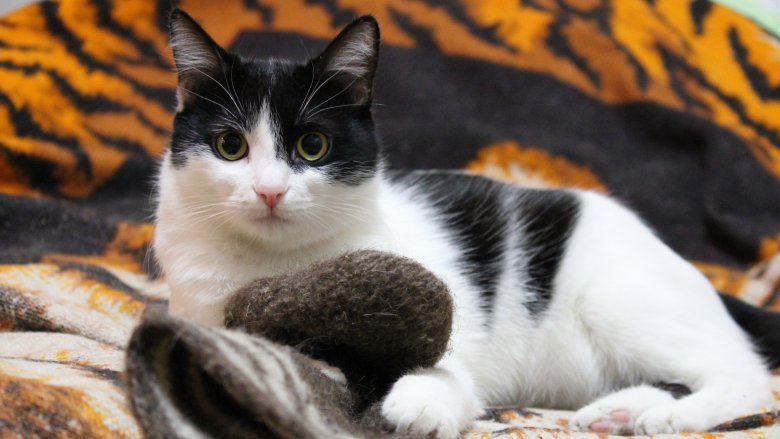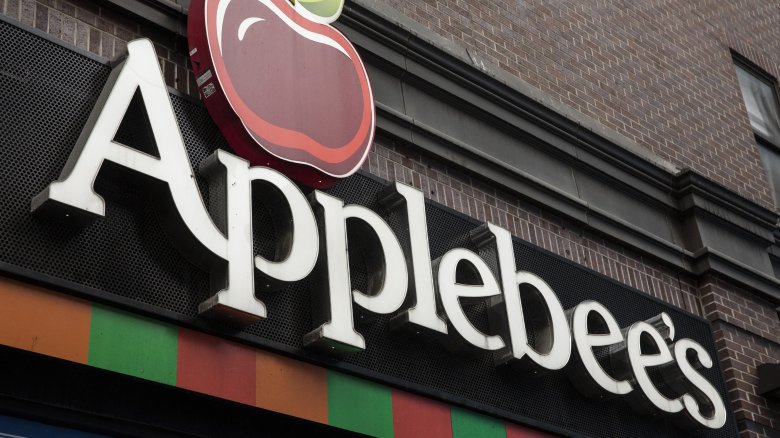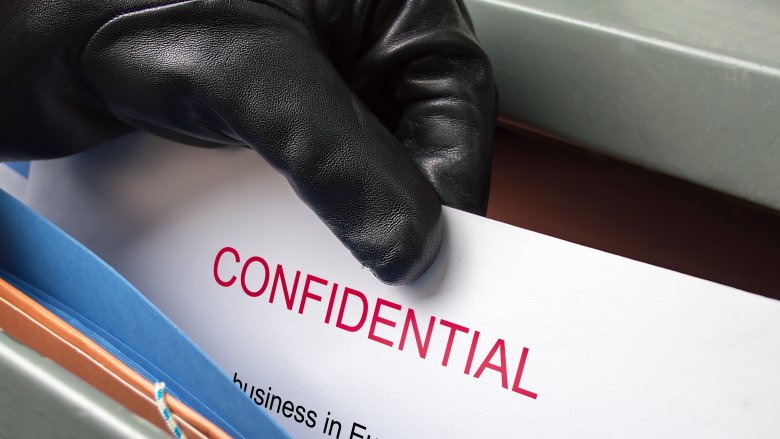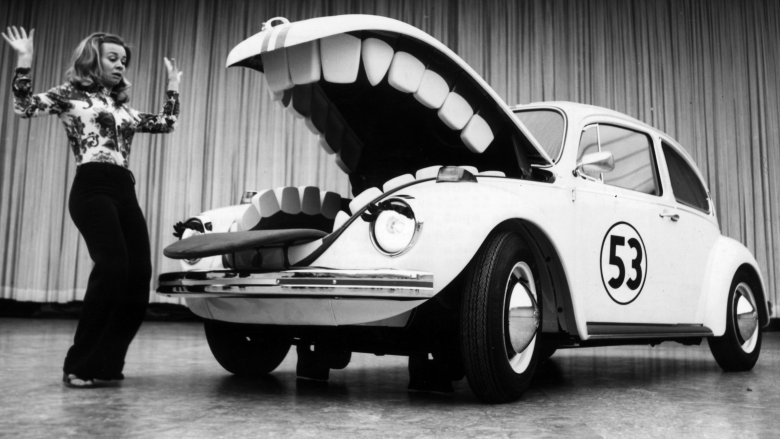Scandals These Major Companies Wish You Didn't Know About
Highly successful companies are built on diligence, professionalism, and the sort of greed that grows a natural handlebar mustache and kicks puppies for fun. Underlying that lucrative trifecta is a fleet of hardworking human beings who keep the whole operation running smoothly. Unfortunately, those moneymaking flesh-bags also happen to be the sharpest of double-edged swords. See, people are equal parts engine and id. When employees' business motors are running, a company can look forward to caviar lollipops and gold bricks raining from the sky. But when the id takes over, the gold bricks get supplanted by a tsunami of stupid. An embarrassing, incorrigible kind of stupid that upper management can only hope the public deletes from memory.
The BBC's buffoonish fibs
It's rarely okay to lie. Sometimes you might need to save your job by pretending your boss doesn't smell or spare your daughter's feelings by telling her the amoeba she drew looks like the doggie she intended. That's perfectly fine. But it's never acceptable to –-say –- covertly alter the results of a cat-naming contest. Embarrassingly, the BBC learned this the hard way.
As the BBC itself recounts, back in January, 2006, the children's show Blue Peter held an online poll to name its new cat. Voters settled on the name Cookie. But for some inexplicable reason, Blue Peter's editorial staff overruled the results, opting to call the cat "Socks." When the truth came out, the punishment was swift and harsh.
The feline faux pas earned the BBC a £50,000 fine, which the BBC news article reporting the fine described as "unprecedented." As a mea culpa, Blue Peter introduced a kitten — named Cookie — to join the ranks. Unfortunately, Cat-gate wasn't a one-off offense. In 2007, the BBC also copped to fabricating contest results on both its Asian network and a music station. And yet, somehow, the BBC didn't stop there either.
Not long after these ego-shriveling admissions, the BBC found itself apologizing to the Queen of England for falsely portraying her as a pouty princess. In an alleged error, it aired cobbled-together documentary footage of Her Highness posing for a portrait and walking somewhere in a huff.
By this point, however, excuses seemed pointless, as the BBC looked more asinine than barrel of donkey butts.
Applebee's internet implosion
Waiters and waitresses often get paid like Dickensian orphans and treated to match. But they can at least hold on to the great expectation of being tipped. Unless their customer's a tightwad. Then they just get platefuls of disappointment. Uncharitable restaurants, on the other hand, leave a bitter taste in everyone's mouths. For example...
As NBC explains, Chelsea Welch used to wait tables at a St. Louis Applebee's. Then in 2013 she crossed paths with Pastor Alois Bell. Bell had ordered $34.93 worth of food and got peeved that her receipt included an automatic 18 percent tip. Instead of padding Welch's pockets with a bank-breaking $6.29, she left a sanctimonious riddle: "I give God 10%. Why do you get 18?"
Feeling miffed and stiffed, Welch posted the pious penny-pincher's receipt and signature on Reddit. Rather than citing an act of God, Applebee's fired Welch for displaying Bell's name online. Yet, as Australia's news.com points out, the company had previously posted a satisfied customer's name and receipt on its Facebook page only weeks earlier. A biblical flood of criticism inundated the Applebee's Facebook page as commenters lambasted its hypocrisy and called for boycotts.
The Applebee's social media team tried to part the sea of invective like a keyboard Moses, but to no avail. The team tried everything from deleting negative posts to denying said deletions to copy-pasting an overlong self-justification. But far from absolving itself, Applebee's had merely committed the cardinal sin of engaging in an internet fight.
Xbox's objectification
Far too often, female video game characters have been little more than garishly big-breasted caricatures who take fashion cues from nudists. Meanwhile, flesh-and-blood females have experienced exclusion and harassment by male gamers and game-makers alike. Sadly, many of those males have been too busy ogling digital boobies and battling estrogen allergies to care. Nonetheless, the molasses-slow lurch of human progress has seen some positive strides... sort of...
As reported by the BBC, in March of 2016 Xbox's parent company Microsoft held a "women in games" luncheon. Cool beans, right? Well, later that very same day, Xbox continued to spotlight women... by throwing a party with scantily clad go-go dancers on pedestals. Very uncool beans, indeed. Making matters worse was the fact that Microsoft totally sanctioned the gathering.
The eye candy extravaganza happened in concert with Xbox's Game Developers Conference and according to Polygon was clearly advertised as a Microsoft event. Undoubtedly, the move was meant to please the assembled male game developers, but female developers and plenty of men took issue with the sight of other women getting objectified.
Hoping to avoid a mini PR Chernobyl, Xbox bigwig Phil Spencer issued a quick apology and emphasized that female objectification didn't jive with espoused company values. Lamentably, history says otherwise. On numerous other occasions, the video game giant has hired go-go dancers as entertainment, giving a special connotation to the 'X' in Xbox.
PwC goes girl-crazy
PricewaterhouseCoopers (PwC) might sound like the ramblings of a deranged word generator, but in 2016 the gibberishly named British firm was the world's second largest accounting firm, according to The Telegraph. Before that it was numero uno, suggesting that over the years PwC has consistently run a tight ship. In 2010, however, the firm's staff seemed more interested in tight tushies.
Evidently enthralled by the new female hires at its Dublin branch, a gaggle of male employees swapped emails about their hotness. As elaborated by ABC News, the junior associates circulated photos of the women and ranked them by desirability. Some correspondences classily referred to them as "clunge," which is British Caveman for lady privates. It was like a corporate edition of Hot or Not, except somehow even skeevier.
Things only got more uncomfortable once the British press got involved and took things a step further by actually publishing the women's photos. No longer reserved for the locker room prattle of lusty accountants, the images were now fodder for every flavor of eye-pervert under the sun. PwC promised to support its exploited female employees, but admonished that their public exposure added a layer of difficulty to doing so.
PwC wasn't the only firm to get ugly over attractiveness. Just as its digital leering made headlines, Ireland's The Herald put financial giant KPMG on blast after male employees shared and ranked photos of three female coworkers. Such shenanigans, it turned out, were part of a yearly tradition among financial institutions, essentially making them really lame frats.
Hampton Creek's mayo manipulation
In 2013 the startup company Hampton Creek seemed glory-bound. Fueled by the hippie-dust fantasy of replacing all meat products with plant-based versions, the firm had obtained backing from men rich enough to floss with Benjamins. According to the Washington Post, those figures included Bill Gates and PayPal cofounder Peter Thiel, who were drawn in by the company's popular vegan mayonnaise, Just Mayo.
In 2014 Hampton Creek gobbled up even more money as investors crammed $90 million into the company's egg-free pie hole. But a Bloomberg investigation suggested the booming popularity of Just Mayo was partially driven by none other than Hampton Creek's own workers. That's right: Just Mayo was buying Just Mayo.
In the shock of the century, it turned out that droves of people hadn't actually come out of the woodwork to slather their veggie sandwiches with fake mayonnaise. A collection of over 250 emails, receipts, and cash reports, along with testimony from former Hampton Creek employees revealed that the startup tasked workers with bulk-purchasing Just Mayo. They purportedly even got scripts for calling in purchases. The company admitted procuring its own product but disputed Bloomberg's fraud allegations. Instead, it described the buybacks as a quality control measure. Not a bad explanation. Besides, if you control the perceived quality of your product, that's a pretty measurable boon.
Whole Foods feigns wholesomeness
Generally speaking, Whole Foods caters to that niche demographic of people who love giving their wallets stress ulcers. In fact, some consumers find the grocer's expensiveness so gross that, as NPR notes, they've nicknamed it "Whole Paycheck." As burns go, that's pretty sick. But it pales in comparison to the five-alarm devastation that Whole Foods has inflicted on itself in recent years.
Remember asparagus water? Marielle Wakim probably does. CBS explains that in 2015 the Los Angeles magazine editor set the internet ablaze when she mocked a local Whole Foods for selling $6 jars of water that contained three asparagus sprigs. Obviously fearful of being laughed to death, Whole Foods dismissed asparagus water as an innocent mistake that shouldn't impede people from buying its other overpriced products.
Far from being a simple, humiliating gaffe, Asparagus-gate betrayed Whole Foods' bad business fetish. In a 2015 article CNN revealed that the company's NYC division listed erroneous weights for at least 80 (out of 80) products, or 100 percent of the food types examined by New York's Department of Consumer Affairs. Furthermore, the grocer overcharged customers by up to $14.84.
The whole affair left a bitter taste, one made even nastier by the fact that Whole Foods had already shelled out roughly $800,000 for similar chicanery in California. That's like taking the same test twice and getting an F-minus both times. But rather than take summer classes, the company coughed up half a million bucks to put its second failure to bed.
Chrysler takes customers for a ride
Odometers are basically primitive Fitbits for your car. But whereas high mileage on a person screams vigor and vivacity, high mileage on a car screams "get a new one." Recognizing that double standard, auto manufacturers try to limit how much unsold cars get driven.
Enter Chrysler. Between 1949 and 1986 the automaker disabled odometers on roughly 60,000 unused vehicles, The Los Angeles Times asserts. This allowed corporate managers to drive the cars for up to five weeks before sending them to unsuspecting dealerships. Upon first glance, this might look like a relatively harmless case of naughty man-children playing with oversized toys. But as then-chairman Lee Iacocca conceded, the practice "went beyond dumb, and reached all the way out to stupid."
For starters, deactivating the odometers kept cars from clocking speed. This resulted in a number of traffic stops and presumably lots of coy giggling as managers tried to explain why they were nearing the sound barrier. Moreover, sometimes those dubious drivers got into accidents, forcing Chrysler to repair vehicles it hadn't even sold yet.
To the befuddlement of no one, this decades-long duplicity caused a hailstorm of lawsuits and federal injunctions. Predictably, Chrysler got wrecked in civil court, and government prosecutors tore the carmaker a new rear bumper. Financial penalties detailed by UPI amounted to over $23 million.
Lifelock's loathsome lies
Identity thieves are like the evil and uglier twin you never wanted. They spend your money willy-nilly, tank your credit score, and turn posting your every movement on Instagram into a stressful gamble. Luckily, in 2006 security firm Lifelock came up with a novel idea: make identity theft impossible.
Championed by CEO Todd Davis, Lifelock promised to pay customers $1 million dollars if Lifelock couldn't dropkick identity theft in the teeth.' And at $10 to $15 a month, the service seemed like a steal. Unfortunately, the Federal Trade Commission found that Lifelock was doing all the stealing. The company only provided rudimentary protection, making the service about as useful as a boat made of toilet paper. Consumers across 35 states had bought into an unfulfillable dream.
Given Lifelock's popularity, it's easy to envision Davis as a modern day P. T. Barnum duping newborn suckers. But as The Phoenix New Times reveals, he was really a sad clown. That becomes painfully clear when you consider that Davis displayed his actual Social Security number in widely aired ads. Because that's the exact opposite of protecting personal information from criminals, Davis's identity got stolen at least 13 different times.
When Lifelock's CEO wasn' acting out the definition of "hubris," his company was getting massively fined by the FTC. In 2010 the company had to pay $12 million for its snake oil antics. Five years later, the FTC assessed a $100 million penalty for continuing to be a pants-on-fire liar.
Hewlett-Packard gets stalker-ish
Corporations, much like actual human bodies, despise unexpected leaks. They're incredibly awkward and leave behind puddles of shame. Accordingly, like a person with excessive bladder drip, companies with information incontinence will seek to stem the outflow. However, sometimes a company's solutions seem more like the paranoid machinations of a drunken hobo. Hewlett-Packard, for example, spied on members of its own board as well as journalists.
As The New Yorker explains, HP's espionage began in 2005 under then-embattled-CEO Carly Fiorina, whom you may remember for her failed presidential run, or for her "demon sheep" campaign ad. She later got excised from the company like a gangrenous toe, but the spying continued under successor Patricia Dunn. Dunn was determined to stitch snitches' mouths shut, so she had private detectives delve into the personal communications of board members and journalists reporting on company secrets.
Investigators seemingly pulled their tactics from the Psychotic Ex playbook. They employed pretexting, which required using targets' Social Security numbers to access phone records. They snuck spyware onto a journalist's computer and, according to The San Francisco Gate, possibly rummaged through trash like a bunch of well-dressed raccoons.
HP's shenanigans were inevitably made public, massively denting the tech titan's reputation. As The New York Times elaborates, the company had to pay $14.5 million in fines plus undisclosed compensation to the journalists it monitored. Patricia Dunn, like Fiorina before her, sheepishly resigned as CEO... and became a board director.
Renault's cloak-and-dagger debacle
Hewlett-Packard's not the only firm to play the spy game and suck at it like an asthmatic vacuum cleaner. In 2011, French automaker Renault wiped the floor with its reputation after falling for a ruse that even Nigerian princes would mock.
In a 2011 article, the BBC illuminates how Renault's higher-ups descended into panic mode after receiving a series of anonymous letters about three of its major players. The men — Matthieu Tenenbaum, Michel Balthazard, and Bertrand Rochette — had supposedly sold China intel about a multibillion-euro car project. The letters further alleged that the trio of turncoats stashed their ill-gotten booty in foreign bank accounts
Renault had two choices: (A) arduously investigate the claims to avoid impugning innocent people, or (B) buy into the anonymous letter writer's accusations. The carmaker chose B, which, coincidentally, is also the first letter in 'boneheaded.' Without consulting the French government –- which owned part of the company –- or any external source for that matter, Renault loosely conducted a hasty investigation and canned the suspected traitors.
Incredulous, the French government did some detective work of its own and concluded the anonymous letters were totally fabricated. Renault had been hosed, and a security official seemed to be involved. Worse yet, the automaker had paid its phantom informant 250,000 euros for spewing the bogus info. Shockingly, the dissembling shadow later offered to provide "proof" of its claims... for another 900,000 euros. Thankfully, Renault had ostensibly reached its gullibility quota.
Volkswagen Keeps It Sleazy
Nowadays, Volkswagen is known as the company that pretended to be eco-conscious while its cars secretly pooed air pollutants like a cow hooked on ex-lax. But more than a decade beforehand, the iconic automaker had an emissions scandal of a more nocturnal variety. Yes: it's about to go there.
The brouhaha began in 2005 when news reports revealed that Volkswagen, the enterprise which made Herbie the Love Bug possible, had become a hub of high-priced hookers, bribes, and fake firms designed to mask the corruption. As detailed by The Guardian, VW's then-personnel chief, Peter Hartz, and erstwhile labor boss Klaus Volkert stood at the center of the cluster-copulation. Hartz, a former government official, decided to spend his post-political days handing Volkert $2.9 million in bogus company bonuses. Volkert, in turn, convinced other labor leaders to support Volkswagen initiatives that hurt their own bottom lines.
Volkert would spend nine years and tons of money pampering his Brazilian mistress and wooing influential labor representatives. Cash gifts, shopping trips, and samba lessons abounded. The labor reps particularly loved brothel hopping, which might explain why their bribe-tastic benefits package also included free Viagra.
Volkswagen's raunchy escapades and corporate prostituting drew both public condemnation and the sexless wrath of German prosecutors, as Germany's Die Welt explains, Harz received a suspended sentence and a $747,000 fine while Volkert got 33 months of Viagra-free hard time.











